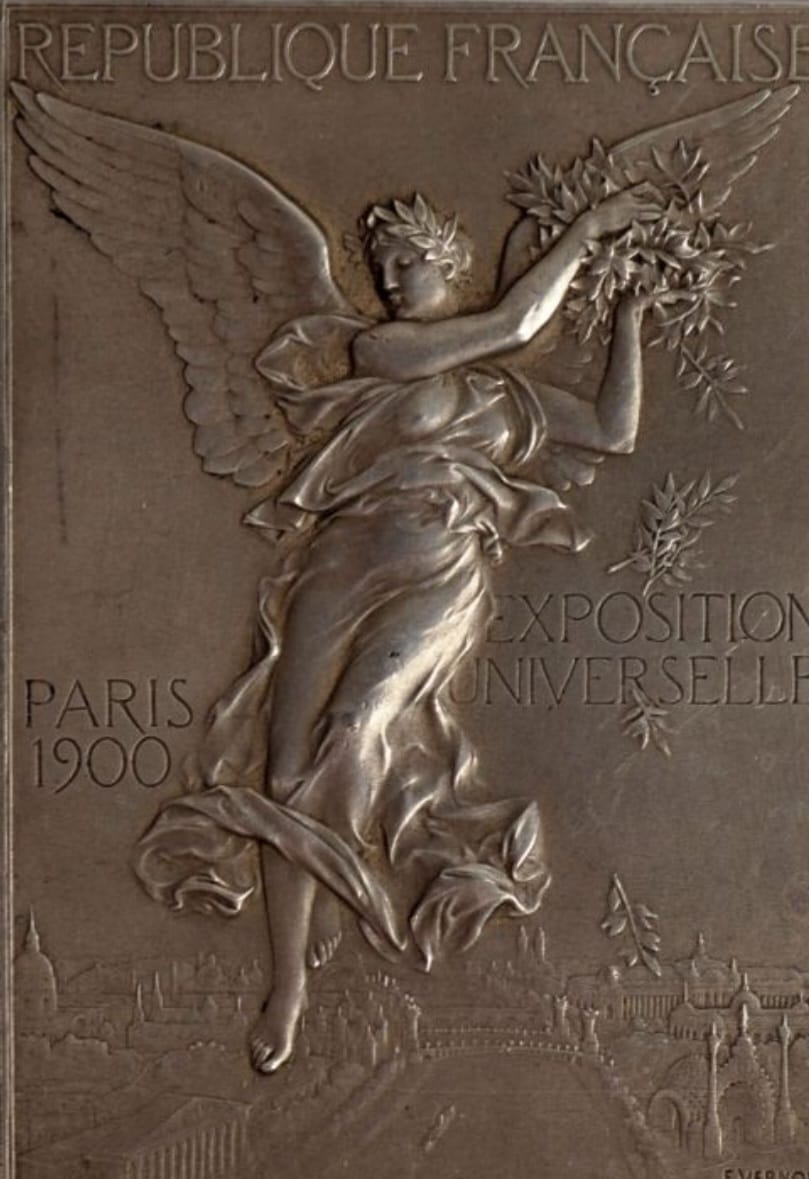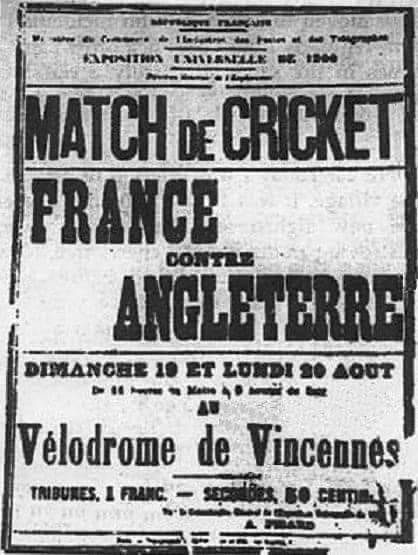French cricket might not be at the cutting edge of the sport’s history but at least les Francais are the reigning Olympic silver medallists.
Cricket was an Olympic sport once – and will be again in Los Angeles in 2028 when a Twenty20 competition is held with a limited number of teams.
It is part of cricket’s bid to exploit the fastest growing market in the game – the United States – which was showcased during the recent T20 World Cup with matches in Texas, Florida and New York.
Unfortunately for the International Cricket Council, which wanted to fast-track its proselytising in the US, the refusal of the home government to issue visas to the strong Afghanistan team meant finals could not be fixtured there.
And don’t bet on diplomatic relations improving enough for Rashid Khan to turn the ball square or Gulbadin Naib to have a strategic phantom cramp in LA in four years’ time.
England won the only Olympic cricket gold medal, so should be automatic qualifiers in 2028, while it would be a nice touch for France to snare an invitation as the most recent runner-up.
As Paris prepares to host the Olympics this month, the nation’s proud Olympic cricket tradition was reinforced to me during a recent trip when I caught up with my former University Cricket Club team-mate Thodi Andersson, now a committed Parisian of more than a decade’s standing.
Thodi’s French adventure started when his wife Lynette gave up her human resources career in Perth to follow her dream of studying at Le Cordon Bleu cooking school in Paris.
Lynette not only topped her class but found, as did Thodi and their two children, that life in the French capital was so captivating that they did not want to move back.
And when he is not working in IT or thrashing club bowlers around the delightful cricket ground cut into the Meudon Forest in south-west Paris, Thodi chairs Standard Athletic Club’s cricket section.
Thodi’s greatest cricket moment came against Claremont-Nedlands during a quite remarkable match that started on a stinking hot day at Melvista Oval and remains proof that the cricketing gods occasionally like to tinker with the fortunes of the tragics drawn to the game.
As the visiting captain, I called heads at the toss and was aghast when the coin went up completely flat, did not rotate at the zenith of its flight, floated down as still as it went up, and settled on the ground without a single spin. Tails. 40 degrees. A dead pitch. And a mutinous crew.
“That wasn’t much of a toss,” the Claremont captain said. “Maybe we should have another one?”
We did. Heads this time. And Thodi out just before lunch for 130 after channelling Michael Slater with a brilliant early onslaught.
We made 350, they didn’t; and we were having cold refreshments at Steve’s by tea on day two.
Thodi’s second greatest moment came at SAC last year when he helped the club find and buy the Olympic medal awarded in 1900.
The Olympic silver medal awarded in Paris in 1900. It was actually made of bronze.
It was SAC that represented France in that novel event 124 years ago and it was the club’s long ambition to track down the only medal known to exist from those days.
Only one winning version is known and it sits in the British Museum.
Not that there was any ceremony at the time, nor for years afterwards.
The 1900 event was not even called the Olympics.
It was referred to as the Exposition Universelle, or Paris Exposition, or world’s fair, and it was not until 1912 that all the events that took place were categorised and the results collated.
Only two cricket teams competed with Belgium and the Netherlands withdrawing late in the piece after a dispute over their bid to co-host the exposition.
A poster for the only cricket match held at the Olympics.
An attempt to include cricket in the inaugural Olympics in 1896 failed due to a lack of entries.
Things were only slightly better four years later when a two-day game was scheduled at cycling venue Velodrome du Vincennes, while cricket was entered but did not materialise at St Louis in 1904. That would be its last mention until the sport was resurrected for LA28.
In 1900, England’s band of Devon and Somerset Wanderers beat a local team of expatriate Englishmen representing the Standard Athletic Club in a match described by Olympic historian Ian Buchanan as “shambolic”.
The square boundaries in the middle of the cycling track were only 30 metres while fewer than 20 spectators watched the action.
The French star was Arthur MacEvoy whose medal was painstakingly tracked down by the club and bought at auction for $7200.
“The club had its origins in the (mostly English) engineers building the Eiffel Tower,” Thodi explained.
UCC cricketers John Townsend, Thodi Andersson and Chris Stannage catch up in Paris.
“At least half of the French team were from Standard.
“There weren’t a lot of locals playing in France but there were a couple of strong clubs.
“Standard was one of them. It had a proud football history, winning several French championships, and that carried over into cricket.”
MacEvoy was a genuine all-rounder. He was the team’s goalkeeper during the winter sport in the 1890s, winning five French championships, before adding a silver medal after claiming a couple of wickets in the only cricket match held at the Olympics.
He died young, at 36 only four years after his silver medal feat, with all French sport on the day being cancelled out of respect for the charismatic athlete.
Yet his prize wasn’t even a silver medal.
The medal awarded to the exposition winners was actually made of silver while a rectangular bronze tablet was given to the 12 members of the losing team.
It was only after the record-keeping process started 12 years later that the medals were designated as gold and silver.
Not that that matters to Thodi and the other SAC members who are revelling in their status as Olympic pioneers.
“Everyone is told that history when they first join the club,” he said. “It is something that sets us apart.”
Just like scoring a century before lunch.





